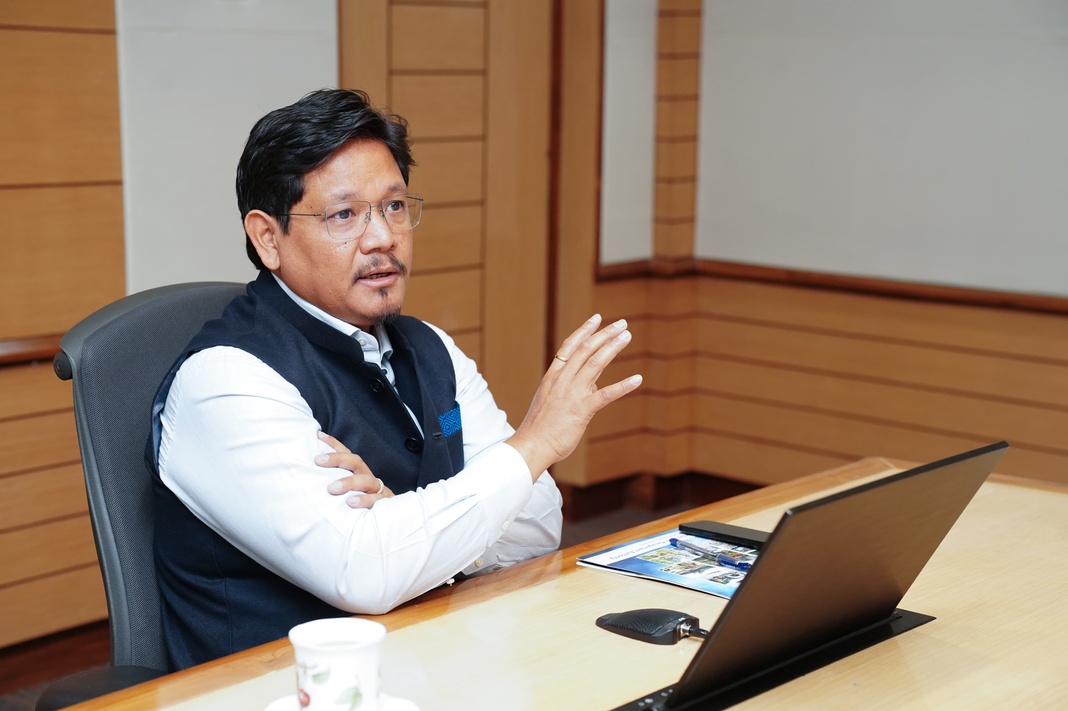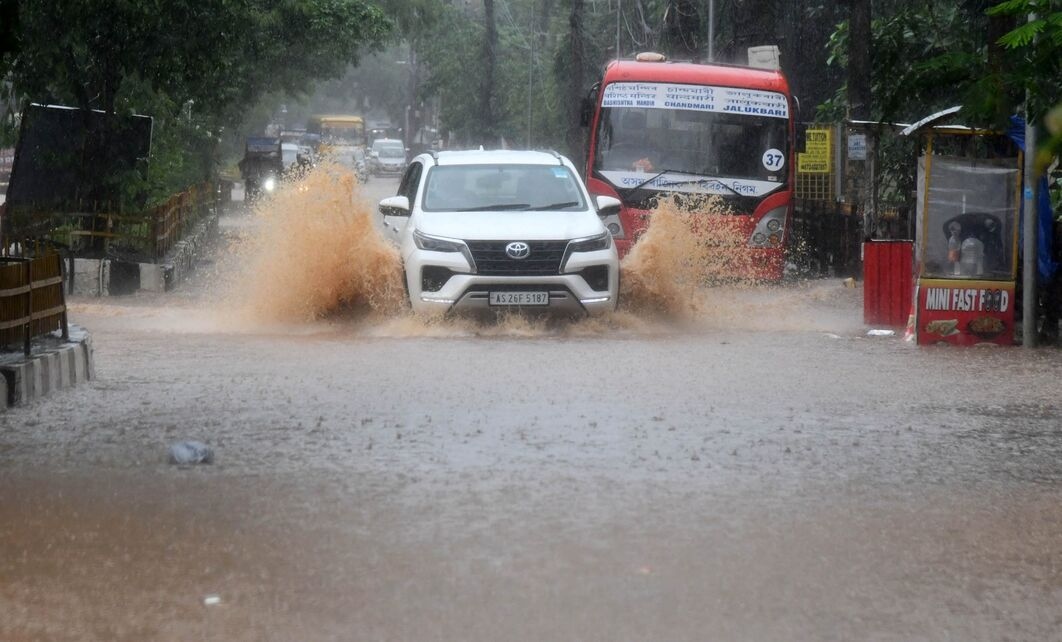
Blame the hills? Meghalaya CM heads to Assam as Guwahati drowns and fingers point cross-border.
Guwahati, May 30: With Guwahati reeling from widespread waterlogging and flash floods, political focus has shifted upstream — quite literally. Meghalaya Chief Minister Conrad Sangma will visit Assam on June 2 to meet with Assam CM Himanta Biswa Sarma over the city’s deepening flood crisis, as both states come under scrutiny following a Supreme Court directive.
At the heart of the matter is unchecked hill cutting near Jorabat on the Assam-Meghalaya border, which experts and residents alike blame for worsening drainage and flooding in Guwahati. The Central Empowered Committee (CEC) — a body constituted by the Supreme Court to oversee environmental compliance — flagged ongoing land degradation in Meghalaya, particularly for the construction of the University of Science and Technology Meghalaya (USTM) and four other large structures.
The CEC has asked both state governments to sit down and sort it out. Their meeting could shape a joint action plan to be submitted to the Supreme Court, which is increasingly taking note of Guwahati’s recurring urban flood disasters.

Environmentalists have long warned that reckless hill cutting, deforestation, and land alterations in Meghalaya’s upland terrain send torrents of runoff cascading into Guwahati — already choking under poor drainage and rapid urban expansion.
However, Assam CM Himanta Biswa Sarma, addressing the media on Friday, downplayed hill cutting as the immediate cause of the current deluge. “Let’s not oversimplify this,” he said. “What we’re seeing now is the impact of a massive weather system — a depression formed over Bangladesh that has triggered days of continuous rainfall.”
He admitted that long-term waterlogging in Guwahati is “partly due” to land-use issues on the Meghalaya side but stressed that Thursday and Friday’s chaos was “nature’s fury” in full swing.
With the IMD issuing a red alert for Assam and the city still grappling with submerged streets, power cuts, and suspended schools, the upcoming Assam-Meghalaya summit takes on critical urgency.
As water drains — slowly — from Guwahati’s streets, the bigger question lingers: How long can the city keep treading water before systemic fixes replace political blame games?





